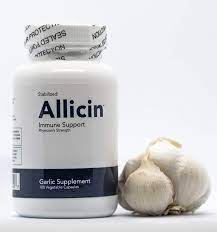How to Properly Take Care of Your
Gut Microbiome
Your microbiome is what we call the
diverse “ecosystem” that exists within your body…
Trillions upon trillions of
microorganisms, all coexisting, and having a huge effect on your overall health
and well-being…
This invisible system plays an
incredibly important role in everything from your immunity and digestion… to
your thoughts, feelings and emotions.
It fights carcinogens and generates vitamins, nutrients and neurotransmitters
And while most of the microbes
living in our body work together for our good, scientists at the Harvard School
of Public Health have found…
How we take care of our body
may trigger some microbes to
become pathogenic – or dangerous and disease-causing.
That said, here are some practical,
everyday tips for you on how to take good care of your microbiome so it can
take care of you:
1. Avoid Processed Food
According to researchers, processed
foods that are high in fat and sodium lead to a reduced microbiome.
Not only do they lack the nutrients
for microbiomes to thrive… eating high calorie processed food also
leads to unwanted weight gain.
2. Increase Your Fiber Intake to Achieve
Microbiome Balance in the Gut
Research says that a high-fiber diet
is the key to maintaining a good balance in your gut microbiome. They recommend
a fiber intake of 30 grams per day…
More than improving your gut health,
a high-fiber microbiome diet helps you lose weight. High-fiber foods make you
feel fuller because they take longer to digest.
The fuller you feel, the less food
you’ll want to eat. Fiber also helps stimulate digestion.
3. Eat Foods Rich in Probiotics to
Keep Microbiomes Robust
Probiotics contain live culture
bacteria and reinvigorate the microbiomes in your body.
These probiotics can typically be
found in fermented food…
However, not all fermented foods
contain live cultures. Beer, wine, and soy sauce are too processed for good
bacteria to live in them.
4. Eat Prebiotic-Rich Foods to
Help Achieve Good Microbiome Balance
More than probiotics, prebiotics are
also beneficial in maintaining good microbiome balance in your body.
Prebiotics Definition: Prebiotics are substances that serve as nutrients for
the microbiome within the human body.
According to
research, prebiotics help microorganisms in the body metabolize
nutrients to promote the human body’s well-being.
More than improving gut health,
prebiotics also help in lowering cholesterol and preventing diabetes.
Numerous studies also pointed out
that prebiotics contribute to maintaining metabolic health, skin health,
and maintaining immune function.
Prebiotics
are commonly found in certain soluble fermentable fibers and dietary fibers.
Here are a few examples:
- Chicory
Root (65% of fiber by weight)
- Jerusalem Artichoke, or earth
apple (31.5%)
- Garlic (17.5%)
- Onions (8.6%)
- Leek (11.7%)
- Asparagus (5.0%)
- Wheat Bran (5.0%)
- Wheat Flour (4.8%)
5. Add Polyphenol-Rich Superfoods into Your Diet to Better Absorb Prebiotics
A number of studies have claimed
that polyphenols balance the gut microbiomes to contribute to overall
gut health.
Polyphenols contribute to
microbiomes by allowing them to absorb prebiotics better.
Polyphenols Definition: Polyphenols are compounds commonly found in medicinal
herbs and dietary plants.
Foods containing high polyphenol
content are highly sought after because of their antioxidant effects.
More than contributing to gut
health, polyphenols are also proposed to be a natural aid to treating
inflammation according to some studies.
6. Consider Taking Supplements for
Better Health
If you aren’t into Kimchi and
Kombucha, you may find it difficult to incorporate probiotics into your
diet…
Taking probiotic supplements may be a better option, and
there are other supplements that work alongside them to support your
microbiome:
- Take
probiotic supplements to feed your body with good bacteria.
- Add magnesium supplements to
activate your digestive system.
- Drink fish oil supplements to keep gut microbiomes
healthy.
7. Give Intermittent Fasting a Try
to Preserve Gut Health
A few studies have concluded
that intermittent fasting positively impacts gut microbiomes.
There’s a reason why this diet has
become one of the trendiest fitness regimes.
Fasting increases microbiome
diversity in the colon.
As a result, fasting leads to a more
robust body by preserving gut health.
Other than maintaining microbiome
balance, intermittent fasting also helps with weight loss, enhanced immunity,
increased longevity, and overall improved health.
The basic concept
behind intermittent fasting is to split your schedule into times for
eating and times for fasting.
There are many ways to do intermittent fasting:
- 16/8
Method: This method requires
focusing your eating period to only 8 hours within the day and fasting for
the remaining 16 hours. For example, you can start eating at 9:00 AM and
start fasting by 5:00 PM. If you’re not a breakfast person, you can also
opt to start eating at 12:00 PM and stop food intake by 8:00 PM.
- 5:2 Diet: This way of intermittent fasting means that
you’ll fast for two days and eat normally for the other five days. Fasting
for two days means consuming only 25% of your daily calorie needs. So if
you consume 1,600 calories normally for five days, then you should only
consume 400 calories per day for the other two days.
- Eat-Stop-Eat Method: The
basics of this method is fasting 20 to 24 hours once or twice a week. For
example, you can eat normally for the next six days until 8:00 PM on the
sixth day. Then, stop eating after 8:00 PM. You will then resume eating by
8:00 PM the next day.
As we take care of the microorganisms in our body, we take
care of ourselves. My hope is that you can now take action to achieve
microbiome balance in your body to improve your overall health.

